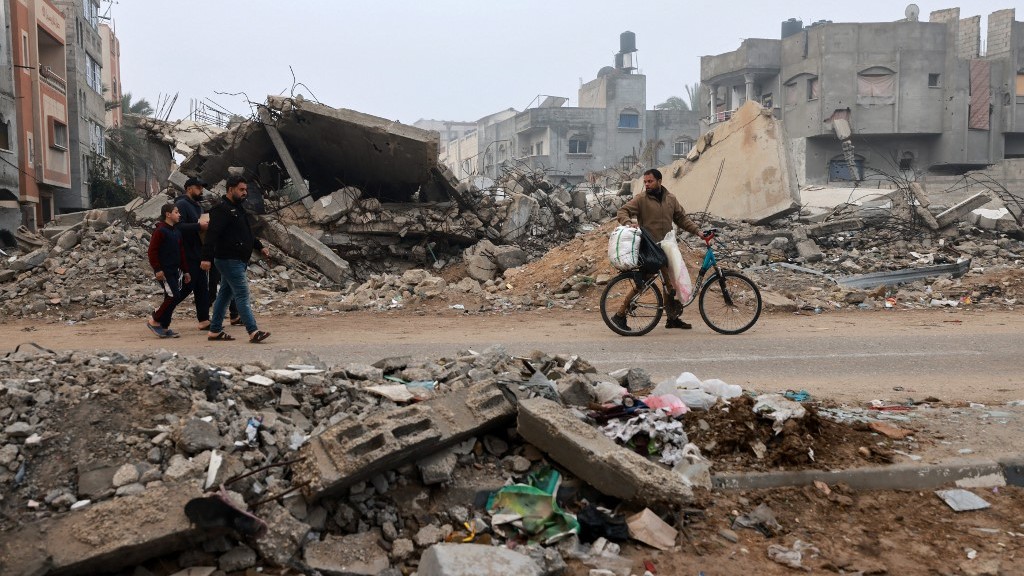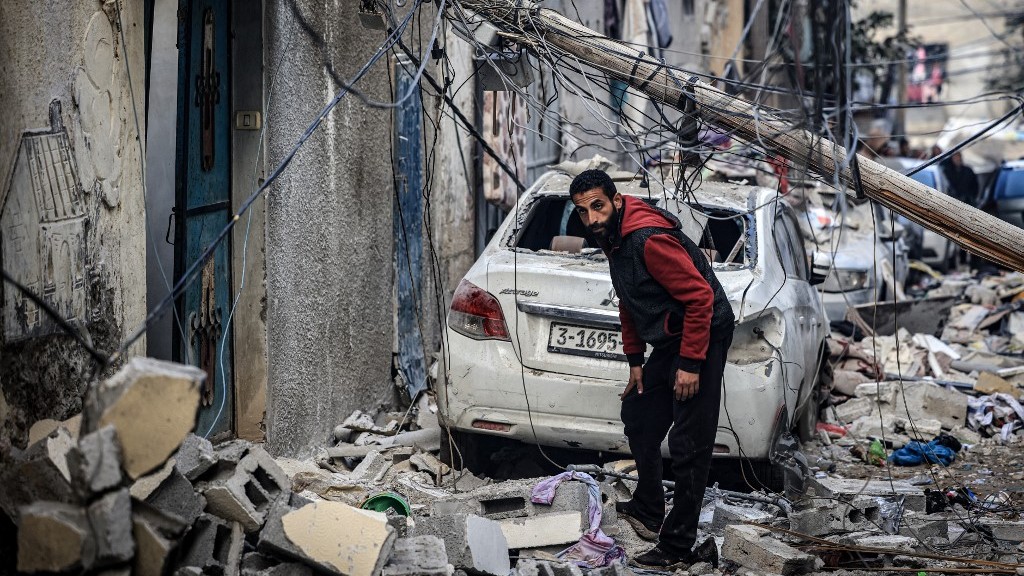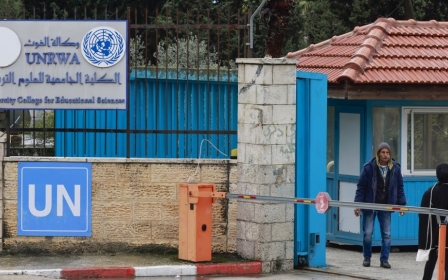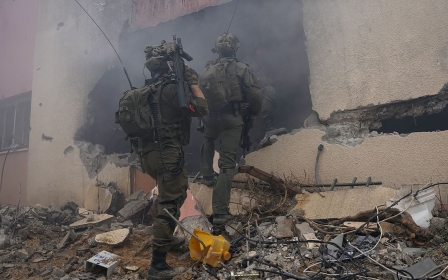War on Gaza: What it’s like to be a journalist in Gaza right now
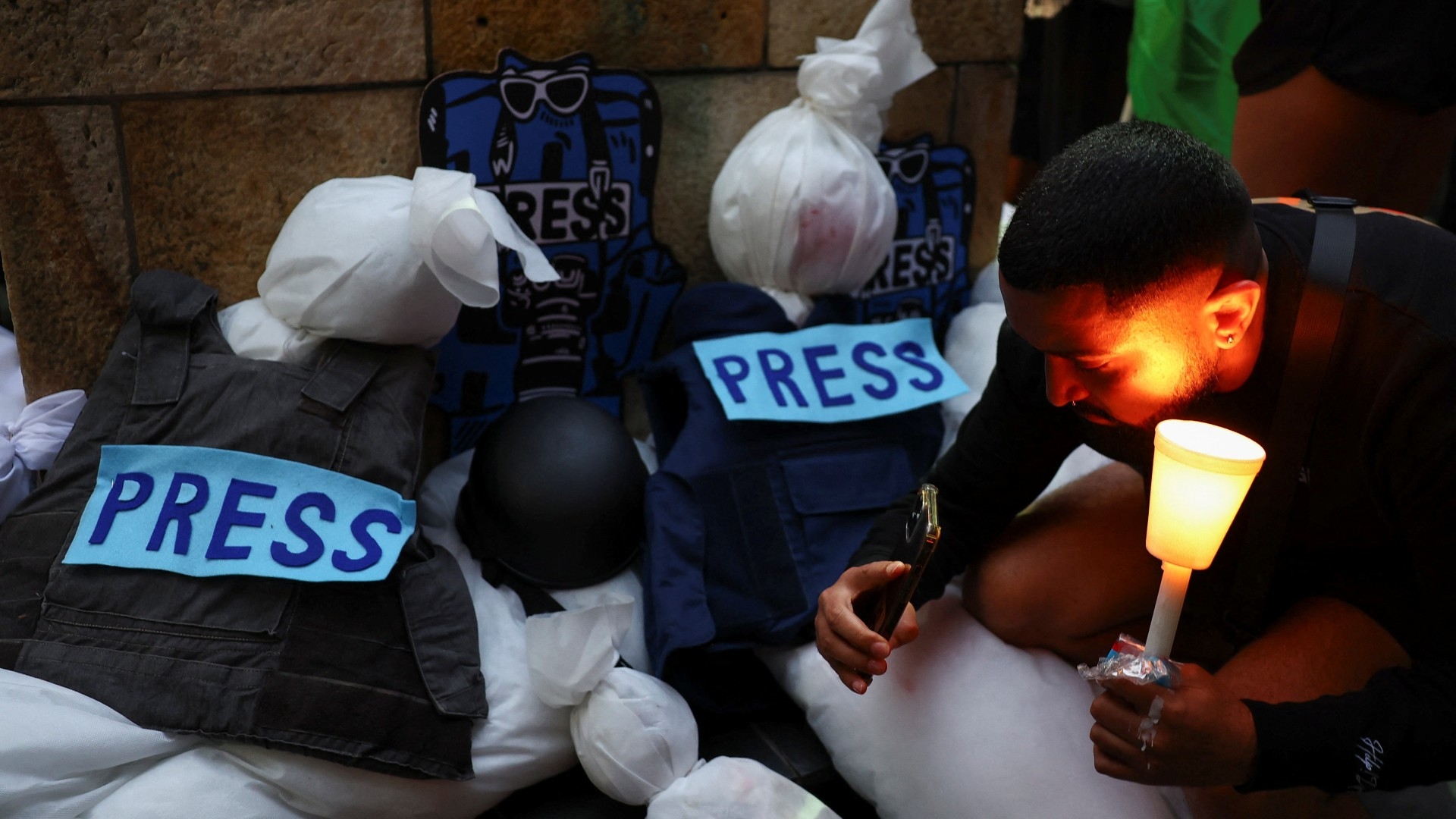
War broke out in Gaza on 7 October, following a Hamas-led attack on Israel that killed around 1,200 people. Since then, Israel has launched a fierce military campaign on Gaza, which has so far killed nearly 28,000 people.
Among those killed are at least 122 Palestinian journalists and media workers, with many more wounded. At least three Lebanese journalists have also been killed by Israeli shelling near the Israel-Lebanon border.
The war has had a catastrophic effect on Gaza, particularly for reporters who have been working around the clock while living through dire conditions, bombardment, and personal loss.
On 27 January, Palestinian TV journalist Amr al-Dahdoudi collapsed live on air while reporting on Gaza for Al Jazeera due to exhaustion and malnutrition.
Days later, on 30 January, Palestinian correspondent Hind Khouday said that other journalists were also feeling the impact of working in extreme conditions and that journalist Ali Jadallah was taken to the emergency room due to extreme exhaustion.
New MEE newsletter: Jerusalem Dispatch
Sign up to get the latest insights and analysis on Israel-Palestine, alongside Turkey Unpacked and other MEE newsletters
Ahmed Abu Aziz, a journalist from Gaza working for al-Quds News, is one of the many reporters who has not stopped working since the start of the war, despite the threat to his life, exhaustion, and malnutrition.
Here, he explains what life has been like for journalists in Gaza.
As told to Ahmed al-Sammak and Nadda Osman.
Outbreak of the war
We were all surprised by the outbreak of the war. Just a few days before, I had finished wrapping up an episode on the landmarks and heritage in Gaza. The first episode was filmed on 5 October.
When the attack happened on 7 October, all of my plans changed, and I had to be on the ground reporting the news. This became particularly difficult as telecommunications were cut for a few days following Israel’s attacks on Gaza.
Everything has become a challenge. Before the war, I had a severe phobia of needles, operations, and graphic scenes. That all changed after 7 October. I had to transform, and by the third day of the war, that was all I was seeing.
I was based in the al-Nasser Hospital for a while to cover Israel’s attacks on civilians and hospitals, and I had to see what was happening in the emergency rooms and the mortuary refrigerators.
Every day, I would see countless dead people, it changed me 180 degrees. There were many times when I would have to pause my reporting to go and help transport dead bodies out of the hospital into the courtyards.
There have been many times, where in the middle of reporting, I have had to stop to carry the scattered limbs and body parts of those who had been killed in Israeli air strikes.
As Israel had cut off all resources for Gaza, including fuel, water, food, electricity, and aid, there was huge pressure on me, and other journalists while covering events because we had no equipment or tools. This has had a significant impact on my mental health.
Nightmares and deteriorating mental health
My two close colleagues were killed in the first week of the war, this took a huge toll on my mental health.
I used to spend a lot of time with my colleagues, Jamal al Muntir, and Ahmed Khair al-Din, who was a photographer in north Gaza. We would call each other every day to coordinate, take care of each other, and warn each other about which areas were dangerous.
Khair al-Din lost 26 members of his family; they were all killed in Israeli attacks, including his father and sister. This all happened by the seventh day of the war.
By this point, it felt like I was all alone and the only one left on the ground as so many more of my colleagues were being killed.
For the first 63 days of the war, I was sleeping on the bare ground in a tent designated for journalists. This marked a new set of challenges for me.
I suffer from horrible nightmares, I still get them today. I see dead and wounded people in my sleep, and there are times when I will go two or three days having slept a total of two hours, all because of the harrowing scenes I witness during the day.
Home destroyed, family displaced
My own house was bombed in an Israeli air strike, by an F-16 fighter jet. The house was completely levelled.
Over 30 people from my family and extended family were wounded in the attacks on our home.
At this point, it became difficult to continue reporting while trying to help my family, many of whom were heavily wounded, to safety.
I was trying to report on the attacks, but at the same time I was dealing with the loss of our home, and seeing my aunts, uncles, and family scattered around and displaced.
The Israeli forces showed no humanity, even as I tried to get my family to Rafah, the bombing continued.
No wedding
We’re going into five months of war now, and I have not even managed to see my fiance for five minutes.
I am worried for her life, and between the bombing and air strikes, we never have the chance to cross paths or spend time together.
'We’re going into five months of war now, and I have not even managed to see my fiance for five minutes'
We had planned to get married in January, but unfortunately, the Israeli occupation has destroyed our homes and hopes.
I had been preparing for the wedding for months, but Israeli forces destroyed everything I had got ready for our marriage.
Things are very complicated and gruelling, every single person in Gaza is suffering mentally and physically. I am seeing the physical strain on my body, everyone is emotionally exhausted too.
There is a huge lack of food, water, and nutrients, which is making it harder to keep going. We never imagined that this would happen to us.
This is worse than any horror movie anyone could have ever imagined.
Middle East Eye delivers independent and unrivalled coverage and analysis of the Middle East, North Africa and beyond. To learn more about republishing this content and the associated fees, please fill out this form. More about MEE can be found here.


